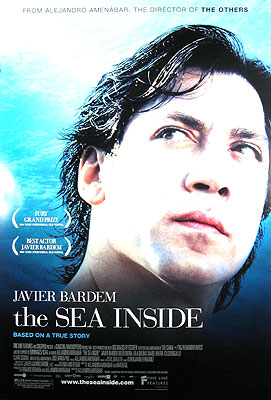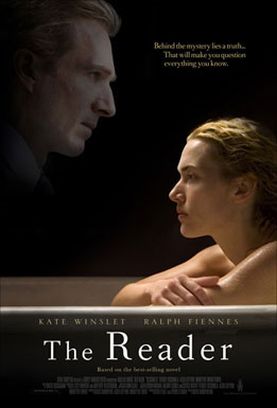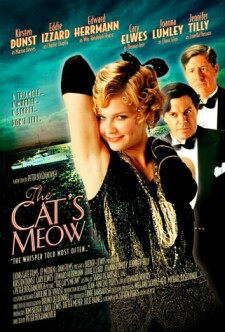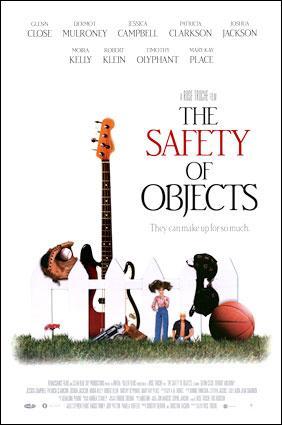Sea Inside, The (Mar Adentro)
“Life is a privilege, not an obligation.” That seems to have been the slogan of Ramón Sampedro a Galician fisherman who became a quadriplegic in a diving accident and, 26 years later, decided that he wanted to kill himself. But it begs the question. How does he know it’s not an obligation? What he means is that he doesn’t want it to be an obligation and therefore chooses to believe that it is not. Presumably all suicides make that choice — a choice that is tantamount to a denial of the existence of God, since a genuine believer could hardly be that and at the same time so rude to God as to refuse what he must regard as His gift. Of course, you’ve got to sympathize with anyone to whom life has in some way become a significant burden, as it did with Sampedro, and to understand how suicide could accordingly become a temptation. But it is a very large step to take from that ordinary human sympathy to making a serious argument in favor of what is nowadays called “the right to die.”
To be fair to Alejandro Amenábar, the author of weird and atmospheric pieces like Abre los ojos (1997) and The Others (2001), his moving and well-directed film version of Sampedro’s life and death called The Sea Inside (Mar Adentro) doesn’t flinch from the philosophical or theological implications of its hero’s choice. Moreover, in casting Javier Bardem in the role of Ramón, Amenábar, has scored as much of a propaganda coup as Julian Schnabel did in Before Night Falls. Bardem makes Ramón a real charmer, and the frustrated longings of a man who can move nothing below his neck are palpable. In a macabre sort of flirtation, he seduces two different women, Julia (Belén Rueda) a tragically fragile intellectual, and Rosa (Lola Dueñas), an earthy factory girl with hidden depths, in the only way he can by persuading them to provide him with the necessary assistance for his long-planned suicide. The almost Wagnerian association between love and death — early in our acquaintance with Ramón we find him listening to the Liebestod from Tristan und Isolde — is carried further when Julia’s own deteriorating health prevents her from fulfilling their suicide pact. It is as if her husband, in persuading her to live, has sucessfully prevented her infidelity with either of his two rivals, Ramón and death.
Also brilliantly done is Amenábar’s portrayal of Ramón’s devoted and loving family — his taciturn brother José (Celso Bugallo), a farmer, and José’s wife, Manuela (Mabel Rivera), who does everything for him, their teenage son, Ramón’s nephew Javi (Tamar Novas), and Ramón’s and José’s somewhat non compos father Joaquín (Joan Dalmau). The family politics of being and bearing a burden are introduced with Javi’s comment on gramps, who is said to be “totally senile” and who “sits at home all day. Who needs him?”
Ramón tells his remarkably insensitive nephew: “Maybe some day you will be so sorry for what you just said that you will hate yourself,” but of course it is really he who hates himself for the absence from his life of what he calls “dignity” — that without which life no longer seems worth living. At least grandpa doesn’t know how useless he is. José refuses to countenance Ramón’s suicide. “I’m your older brother: as long as I’m around no one kills anyone in this house.” His stern refusal takes on the hardness of morality in contrast with the paradoxical softness of Manuela’s uncritical love when she says: “Ramón wants to die; that’s enough for me.”
It will be clear that immensely complex moral issues are being raised here, but the film doesn’t really come to grips with them apart from their human impact, which it always adumbrates with enormous skill and sensitivity. Ramón is allowed much too easy a triumph over a quadriplegic priest, Father Francisco (José María Pou), who rather cleverly tries to argue him out of his plan to kill himself by saying that his belief that his life is his own, to do with just as he pleases, is really an extension of the bourgeois desire for possession. Ramon, obviously a leftie, is meant to be given pause but instead he merely brushes the idea aside because it comes from a spokesman for the Catholic church, which every communist knows has always been capital’s lackey. So that’s it for that argument then.
Amenábar is allowing politics, and in particular the anti-clerical politics of post-Franco Spain to do the moral heavy lifting for him here, and the fact points up the unfortunate extent to which the film’s moral seriousness is compromised by its purposes as propaganda. The hard edge of Ramón’s atheism is softened as he discusses the afterlife with the still believing but confused Rosa. He says he doesn’t know but he just has a hunch that there will be nothing more of him after he sips his fatal cocktail: “Like when Dad says he thinks it will rain tomorrow.” Perhaps it is just out of deference to Rosa’s feelings that he fails to mention to her what must occur to many other traditional believers: that he’s betting his immortal soul on this “hunch.” Still, there are just occasionally moments when Amenábar allows his film to suggest that it may not be quite so easy as the propaganda suggests — as when poor old Joaquín, in the only moment of lucidity that takes him beyond his weather predictions, says that “there’s only one thing worse than your kid dying on you: him wanting to.” Maybe, after all, life is just a bit of an obligation.
Discover more from James Bowman
Subscribe to get the latest posts to your email.







